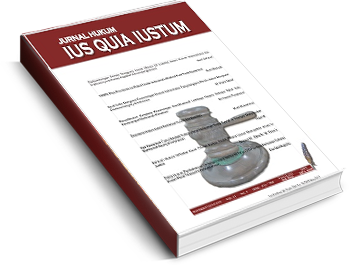Main Article Content
Abstract
Honorary Council Election (DKPP) is considered very progressive because in less than two years from its inauguration, it has solved around 127 cases. However, there are several decisions made by DKPP which are controversial because they make decisions and give sanctions to not only violations of ethical codes, but also administrative sectors and conflicts related to general elections. The problems of this research are: first, what are the limits of DKPP’s authority in investigating and making decisions on ethical code violation during general election? Second, how is the relationship pattern among KPU (Election Supervisory Committee), Bawaslu (Election Watchdog), and DKPP which is based on electoral integrity in conducting general election? This research employed statute and conceptual approach as well as qualitative analysis. The findings show that: first, the limits of DKPP’s authority have been governed in the Constitution of Elections. DKPP only has authority to investigate and make decisions on the notions of ethical code violations which are done by election committee. Second, the pattern of the relationship among election committees in Indonesia has actually adopted the electoral integrity principles, but it will be better if DKPP, in doing its duties, does not overlap with the authority of other agencies or institutions so that they can work professionally.
Keywords
Article Details
Authors who publish with this journal agree to the following terms:
a. Authors retain copyright and grant the journal right of first publication with the work simultaneously licensed under a Creative Commons Attribution License that allows others to share the work with an acknowledgement of the work's authorship and initial publication in this journal.
b. Authors are able to enter into separate, additional contractual arrangements for the non-exclusive distribution of the journal's published version of the work (e.g., post it to an institutional repository or publish it in a book), with an acknowledgement of its initial publication in this journal.




